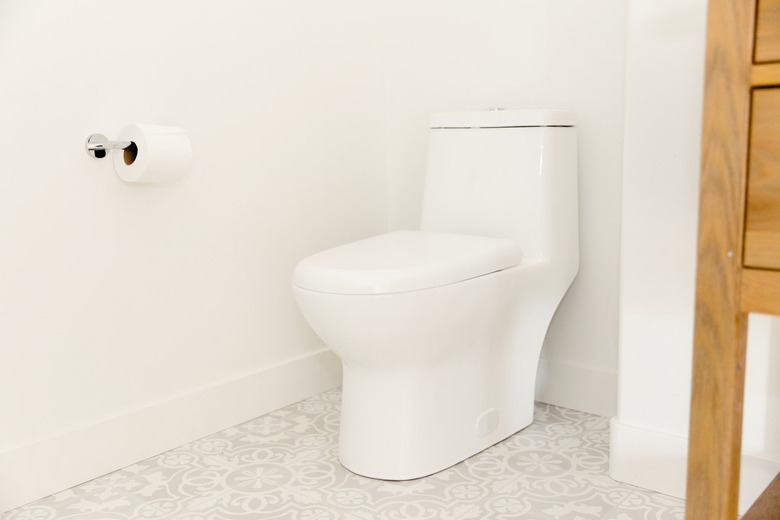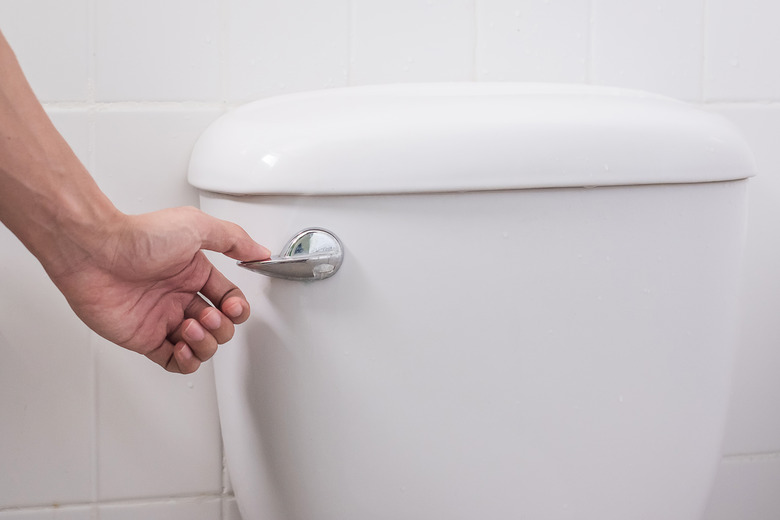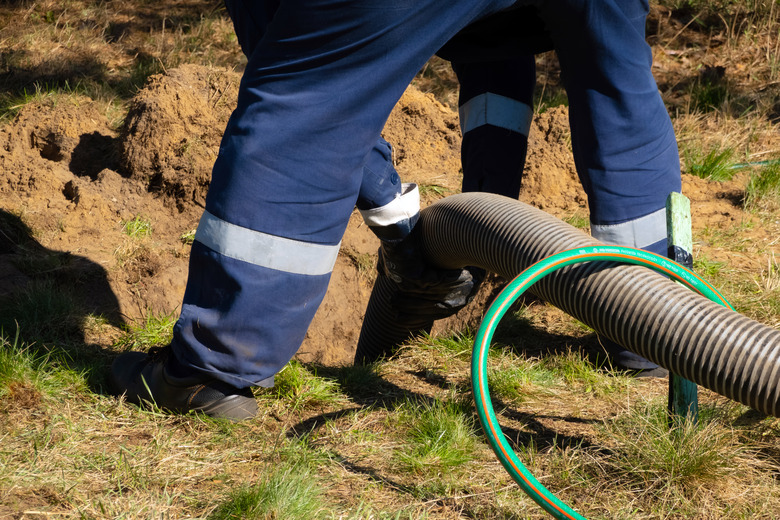Septic System Care And Maintenance: A Homeowner's Guide
We may receive a commission on purchases made from links.
Living in a rural or remote area means you get to enjoy nature and privacy, but it also means you'll likely have a septic system for your wastewater. This waste treatment option uses a large underground tank and a leach field to get rid of wastewater and solids from your home. Understanding and following proper septic system maintenance helps keep it operating well to keep your groundwater safe and your plumbing working correctly.
Importance of Septic System Maintenance
Importance of Septic System Maintenance
Replacing a septic system ranges from $3,000 to $10,000, while septic system repairs can cost anywhere from $600 to $3,000. Proper use and care of the system keep it in optimal condition, minimizing damage that can be very costly to repair. If the system isn't maintained, it can cause plumbing backups that make it impossible to use your plumbing until it's fixed. Issues can also make your property stinky and can leave the ground extra soggy.
Ignoring proper use and maintenance can also pose a threat to your family and the local ecosystem. Failure of a septic system can allow wastewater to enter the groundwater or otherwise contaminate the environment. This can pose a health risk to anyone who comes into contact with the wastewater.
What's Safe to Flush
What's Safe to Flush
The only things you should flush down the toilet are human waste solids and toilet paper. Be picky about the type of toilet paper you use, looking for septic-safe toilet paper for best results. While all toilet paper will eventually break down, thick, multiply brands tend to break down more slowly, potentially leading to clogs. Products with added lotion can add chemicals to the tank that can interfere with the waste treatment process. You might be used to the pampering from thicker, softer toilet paper, but your septic tank will work better when you reach for fewer plies.
Whether you have a septic system or a sewer, it's a good idea to avoid flushing anything other than toilet paper, but a septic system is particularly susceptible to issues if you flush the wrong thing. Anything extra can clog the system and increase the buildup in the tank, forcing you to pump it sooner. Avoid flushing anything else down the toilets, including:
- Baby wipes or wet wipes (including "flushable" wipes)
- Diapers
- Cat litter
- Menstrual hygiene products
- Paper towels
- Cigarette butts
- Coffee grounds
- Household chemicals
Homeowners who flush anything extra down the toilet are likely to face backups or excessive buildup of solids in the tank. These things can require a costly visit from a professional to fix it.
Watch Sink Drains
Watch Sink Drains
It's not just the things you flush that can affect your septic system. Letting things go down your sink drains can disrupt the environment in the tank. That includes things like grease, cleaners, bleach, and other chemicals. Don't use chemical drain openers if you have a clogged drain, as the chemicals can kill the essential organisms in the tank.
Avoid using a garbage disposal if you have a septic tank. Your disposal might grind up the food you put down it, but it still sends solids into the septic tank. If you use a garbage disposal, expect to pump your tank more frequently.
Reduce Water Usage
Reduce Water Usage
Your water use can affect how well your septic system works. When you turn on your faucets and use water in any way, it ends up in your septic tank, where the water has to be processed and released into the drain field. When you use lots of water, the system has to treat every last drop, which makes it work harder. Your septic tank works more efficiently with less water flowing into it.
Some ways to reduce your water usage include:
- Install high-efficiency toilets.
- Install high-efficiency, low-flow showerheads.
- Replace older water-using appliances with newer, energy-efficient models that use less water.
- Use faucet aerators to slow water flow.
- Adjust your washing machine water level to match the load size (many newer machines can do this automatically).
- Space laundry and dishwasher use throughout the week to leave time in between for proper waste treatment.
- Take turns running the washing machine, washing dishes, and showering to avoid pushing a lot of water into the system at once.
- Fix plumbing leaks quickly.
- Shorten showers, shut off the water while brushing your teeth, and change other everyday water-related habits to reduce unnecessary water use.
If your home has a water softener or purification system, talk with a licensed plumber about redirecting the water from that system. Water softeners and other water systems (such as reverse osmosis water filters) can use a lot of water that ends up in the drain. If it's directed into your septic tank, it overloads the system and affects how well it treats the waste.
Use Septic-Safe Products
Use Septic-Safe Products
When you wash your hands, dishes, or laundry, the suds go down the drain, and you likely don't think about them, but everything you put down the drain, even if the water washes away the bubbles, ends up in your septic tank. Choose gentle soaps and detergents made with natural ingredients rather than harsh, chemical-filled cleaners to protect the bacteria in your septic tank. Anti-bacterial soaps can be particularly harmful since your septic tank relies on bacteria to treat the wastewater properly.
Also choose gentle household cleaners without harsh chemicals. This is especially important when cleaning your toilet, shower, and sinks since those chemicals wash down the drain when you're finished cleaning. Any harsh chemical cleaners can damage the bacteria in the tank.
Protect the Drain Field
Protect the Drain Field
Your septic tank has a drain field, or leach field, where the effluent travels. Effluent is wastewater or liquid sewage from your septic tank. It flows into a system of perforated pipes (each surrounded by gravel) and percolates into the surrounding soil, where it is filtered by the soil and digested by beneficial bacteria. To keep the system working correctly, you need to maintain your drain field to protect it. If you're not sure where the drain field is located, ask your septic tank professional to show you where it's located and create a sketch of the system for reference.
The only thing you should grow over the drain field area is grass. Trees or plants with deeper roots anywhere near the leach field can grow into the system and interfere with normal operation. Avoid building anything on or near the leach field and never park vehicles on the drain field area. This can compact the soil, reducing the oxygen that the beneficial bacteria need to process the waste.
You can also help the system work smoothly by directing rainwater and downspouts away from the drain field, as excess moisture can interfere with the process. Don't drain a hot tub near the septic tank. Not only can the excess water hurt the system but the chlorine and other chemicals can kill bacteria that the system needs.
Skip Septic System Additives
Skip Septic System Additives
You'll find lots of septic tank additives available that claim to work miracles in your septic system. The main claims are for additives that increase bacteria and those that break up sludge so you don't have to pump out the system. However, there's little data to confirm these claims, and a healthy septic system doesn't need this extra help.
When you do proper maintenance on your septic system, your system has plenty of bacteria to take care of the job. If it needs more bacteria, it'll produce more. All systems need to be pumped eventually. No additive can eliminate the need for pumping the system.
Sometimes, additives can introduce new problems to the system. They might suspend solids in the wastewater, causing them to flow out of the tank and clog your drain field. Since the additives likely won't help and could actually hurt your system, it's best to avoid them completely. Some states have restrictions on which additives you can use, so check the regulations in your area if you're considering additives.
Know When to Pump
Know When to Pump
Regular pumping is essential to maintaining a healthy septic system, but it's not as simple as having it pumped every so many years. Your usage dictates how often the tank needs to be pumped. If your tank is installed and designed properly, it should last three to five years between pumpings, but you might need to do it sooner if there's an issue. The depth of the scum and sludge layers inside the tank determine when the tank should be pumped. Your septic tank professional should pump if the bottom of your scum layer comes within 6 inches of the outlet tee or if the sludge comes within 12 inches of the outlet tee.
However, the tank size might force you to pump more often if it's too small. Other factors include how many people live in your home, the amount of wastewater you create, and the amount of solids in the tank. For example, using a garbage disposal increases the amount of solids in the tank, which increases the frequency of pumping.
Schedule a professional inspection at least once every three years for a standard septic system. Call for service sooner if you notice issues with your system. The signs that your septic system needs pumping include pooling water, bad odors, and extra lush and green growth over the septic area. Some systems use mechanized parts, such as pumps or float switches. Those parts should be inspected professionally each year to ensure everything is working smoothly.
Choose a Qualified Professional
Choose a Qualified Professional
Most of the maintenance and repair work on a septic system isn't a DIY job but instead should be done by a licensed professional. The pathogens and gases inside the tank make it dangerous to work with on your own. You shouldn't inspect your tank because of these dangers, but you should take a homeowner's safety course if you want to inspect the system yourself. However, it's best to leave all inspection work and repairs to a professional.
Choose a company that specializes in septic pumping and repair rather than a handyman who handles different types of jobs. Septic systems are very intricate, and anyone who works on yours should have extensive knowledge on how they work.
Verify that the septic company is licensed and insured. Ask about how much experience they have, how many septic tanks they service in your area, and what types of septic systems they work on. Look for online ratings and reviews for the septic company to get a sense of the company's reliability. Check for concerning comments on reviews, especially if the same issue is mentioned by multiple customers.
Maintain System Records
Maintain System Records
Whenever you have your system inspected, serviced, or pumped, ask for a copy of the report. Keep a file of all reports and details of repairs and other work that's done to the system. Keeping track of scum and sludge levels with each professional visit helps you anticipate when you'll need to have the system pumped. Your professional should note any repairs made as well as any recommended repairs that aren't made.


